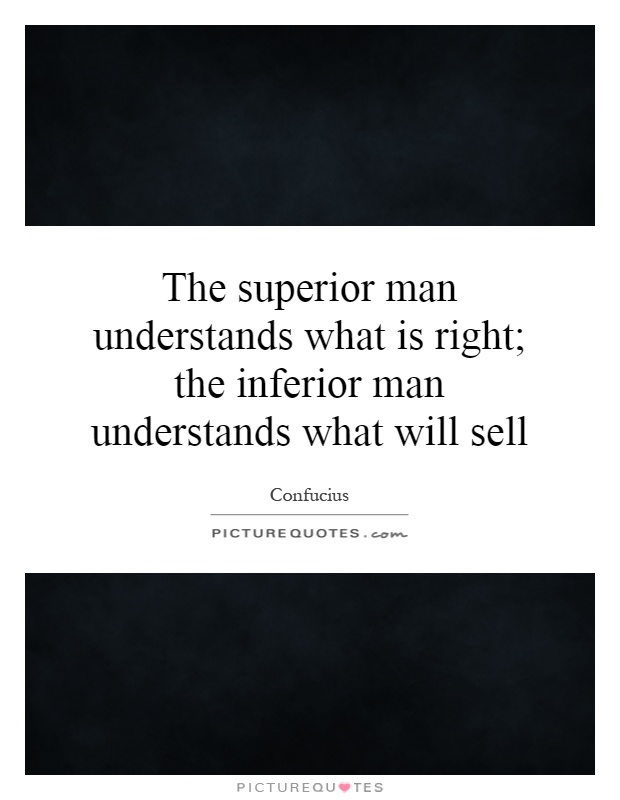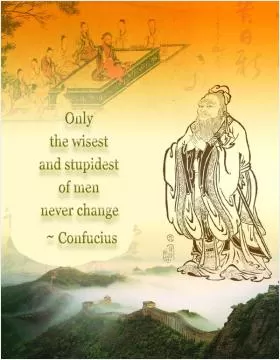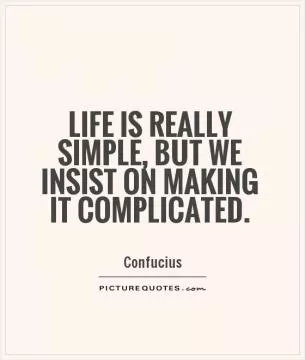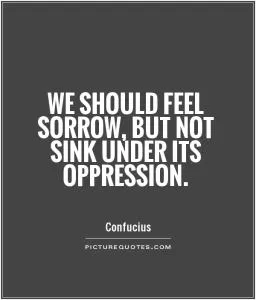The superior man understands what is right; the inferior man understands what will sell

The superior man understands what is right; the inferior man understands what will sell
Confucius, the ancient Chinese philosopher and teacher, emphasized the importance of moral values and ethical behavior in his teachings. One of his famous quotes is, “The superior man understands what is right; the inferior man understands what will sell.” This statement reflects Confucius’ belief that true greatness lies in understanding and following moral principles, rather than simply seeking personal gain or profit.In Confucian philosophy, the concept of the “superior man” refers to an individual who embodies virtues such as benevolence, righteousness, propriety, wisdom, and sincerity. This person is guided by a sense of duty and responsibility towards others, and strives to act in accordance with moral principles in all aspects of life. The superior man is not swayed by material temptations or selfish desires, but instead prioritizes the well-being of society and the greater good.
On the other hand, the “inferior man” is driven by self-interest and a desire for personal gain. This individual is willing to compromise moral values and ethical standards in order to achieve success, wealth, or power. The inferior man is focused on immediate gratification and short-term benefits, without considering the long-term consequences of his actions. This person is more concerned with what will sell or be profitable, rather than what is right or just.
Confucius believed that true greatness and moral excellence can only be achieved through self-cultivation, self-discipline, and a commitment to ethical behavior. The superior man understands the importance of upholding moral values and principles, even in the face of adversity or temptation. This person is guided by a sense of integrity and righteousness, and seeks to make decisions that are in line with the greater good of society.












 Friendship Quotes
Friendship Quotes Love Quotes
Love Quotes Life Quotes
Life Quotes Funny Quotes
Funny Quotes Motivational Quotes
Motivational Quotes Inspirational Quotes
Inspirational Quotes